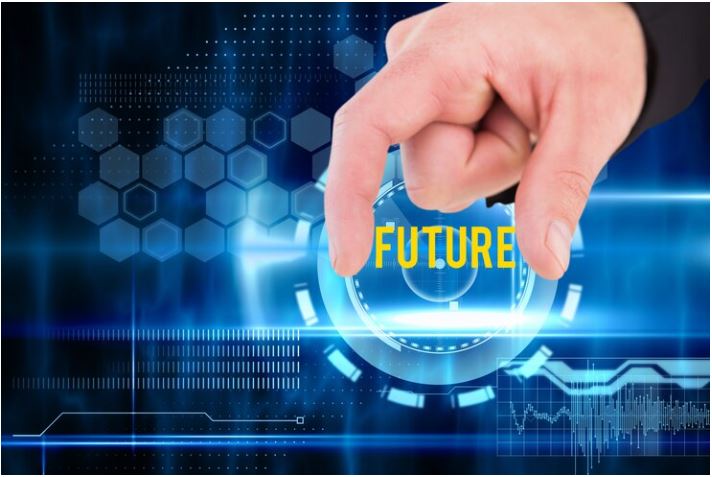
The Fourth Industrial Revolution (4IR) is unfolding before us, distinguished by a fusion of technologies blurring the lines between the physical, digital, and biological spheres. It is characterized by a range of new technologies that combine the physical, digital, and biological worlds, impacting all disciplines, economies, and industries. Central to this transformation is the advent of cyber-physical systems powered by a confluence of innovations such as artificial intelligence (AI), the Internet of Things (IoT), and advanced robotics. These innovations are not just revolutionizing how we interact with the world but also promising to address some of the most pressing challenges of our time, including environmental sustainability and resource scarcity. In this exploration, we’ll examine the three biggest innovations of the 4IR, discussing how each is pioneering unprecedented changes across industries and society at large.
Eco-Friendly PLCs – Pioneering Sustainable Automation
Eco-friendly Programmable Logic Controllers (PLCs) represent a significant leap in industrial automation, embodying the essence of 4IR by merging technological progress with ecological awareness. These advanced PLCs are designed to optimize energy consumption, minimize waste, and streamline production processes, all while reducing the carbon footprint of manufacturing activities. With their ability to intelligently monitor and control the machinery, Eco-Friendly PLCs are becoming the cornerstone of smart factories, enabling businesses to achieve their sustainability goals without compromising efficiency or productivity.
Integrating these PLCs in manufacturing facilities marks a shift towards a more sustainable industrial ecosystem. They facilitate real-time data analytics, which helps predict maintenance needs, thus reducing downtime and extending equipment life. Their capacity to adjust energy use dynamically based on the workload helps cut excess consumption, leading to significant energy savings and cost reductions. As industries strive to align with international environmental standards and green initiatives, these PLCs are proving to be vital tools in the green transformation of industrial operations.
Revolutionizing Recycling with Advanced Robotics
The second major innovation transforming the 4IR landscape is the advent of the recycling robot. As the world grapples with waste management and recycling challenges, these robots emerge as game-changers equipped with cutting-edge technology to sort, process, and recycle materials with unprecedented efficiency. Integrating AI and machine learning algorithms enables these robots to identify and separate recyclable materials from waste with precision and speed that human sorters can’t match.
Recycling robots are transforming the recycling industry by increasing the throughput and purity levels of recycled materials, thus making the recycling process more profitable and sustainable. They are capable of adapting to various waste streams and learning over time to improve their sorting abilities, a feature that is crucial as the composition of waste continues to evolve. By reducing contamination in recycling streams, these robots are not only enhancing the economic viability of recycling plants but are also ensuring that more materials can be effectively recycled, thereby conserving natural resources and reducing environmental pollution.
The Integration of the Internet of Things (IoT) in Daily Life
The third pivotal innovation of the 4IR is the widespread integration of the Internet of Things (IoT). IoT technology connects billions of devices, sensors, and systems, creating intelligent networks that can communicate with each other and humans in real time. This interconnectivity paves the way for smart cities, enhanced healthcare, and personalized consumer experiences. It transforms everyday life, making it more convenient, efficient, and responsive to our needs.
The impact of IoT is vast and multifaceted. In smart cities, it enables better resource management, from optimizing traffic flows to reducing energy consumption through smart grids. In healthcare, wearable IoT devices empower patients to monitor their health conditions continuously, allowing for timely interventions and personalized treatment plans. For consumers, IoT devices in the home, such as smart thermostats and refrigerators, are not just novelty items but tools for reducing energy consumption and food waste, contributing to a more sustainable household.
The Fourth Industrial Revolution is not merely about technological advancements; it is a comprehensive overhaul of our industrial, societal, and personal landscapes. From Eco-Friendly PLCs revolutionizing sustainable manufacturing to recycling robots that are refining waste management and the omnipresent IoT transforming our everyday experiences, these innovations are the keystones of a future that is more efficient, more sustainable, and more attuned to the needs of the planet and its inhabitants.
These groundbreaking developments are not just reshaping our current world; they are laying the foundation for the future. As we stand at the cusp of these changes, businesses, governments, and individuals must embrace these innovations, harness their potential, and steer them towards outcomes that benefit society. The promise of the Fourth Industrial Revolution lies not just in technological supremacy but in its ability to foster a world where progress and sustainability go hand in hand.
